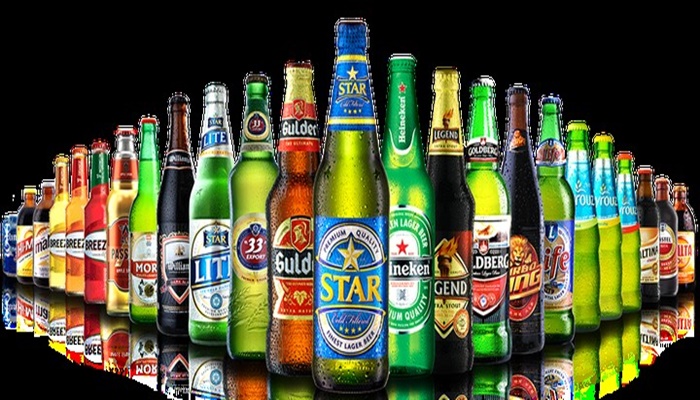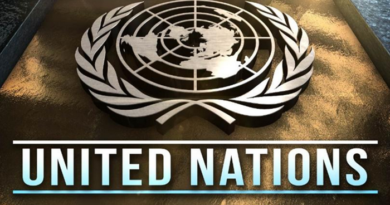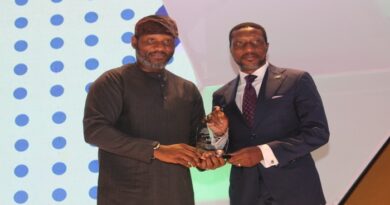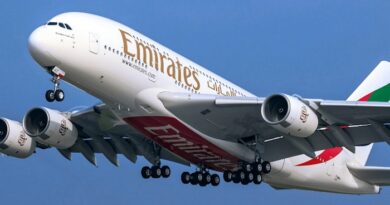IMF advises FG to impose 100% excise duty on alcoholic beverages, tobacco
The International Monetary Fund (IMF) has called on the Federal Government of Nigeria (FGN) to impose 100 per cent increase in excise duty rates on all alcoholic beverages and cigarettes to conform to global norm.
The recommendation, contained in its 2018 Mission Report on Nigeria, is higher than the rates approved by President Muhammadu Buhari.
It would be recalled that new rates announced on Sunday by the Minister of Finance, Kemi Adeosun, are to become effective from June 4, 2018.
The new excise duty rates approved by President Buhari for tobacco were in addition to the existing 20 per cent ad-valorem rates.
According to the new rate, cigarette would attract N1 specific rate per stick (or N20 per pack of 20 sticks) in 2018; N2 specific rate per stick (or N40 per pack of 20 sticks) in 2019, and N2.90k specific rate per stick (or N58 per pack of 20 sticks) in 2020.
The minister said Nigeria’s cumulative specific excise duty rate for tobacco stood at 23.2 per cent of the price of the most sold brand, as against 38.14 per cent in Algeria, 36.52 per cent in South Africa and 30 per cent in Gambia.
According to IMF, in Ghana, beer and other alcoholic beverages attract excise duty rates of 47.5 per cent, while local spirits, including “Akpeteshe” attract 25 per cent duty. The duty for tobacco products is 150 per cent for cigarette and cigar, $12 per kilogramme for Negrohead and 170.65 per cent for snuff and other tobacco products.
In Senegal, the duty for alcoholic beverages is 40 per cent and 45 per cent for tobacco, 5 per cent for coffee and tea.
In Nigeria, the new excise duty rates for alcoholic beverages were N0.30k per centilitre of Beer & Stout and N0.35k per centilitre of wines and spirits between in 2018 and 2020 while wines would attract N1.25k per centilitre in 2018 and N1.50k per centilitre each in 2019 and 2020, N1.50k per centilitre was approved for spirits in 2018, N1.75k per centiliter in 2019 and N2.00k per centiliter in 2020.
The IMF in its Mission Report at the end of its 2018 Article IV consultation on Nigeria, noted that the excise duties rates for alcoholic beverages and cigarettes were very low and should be reviewed as “a fail-proof revenue raising strategy.”
It also recommended that the excise duties for the two commodities should be converted from ”ad Valorem to specific rates” to reflect the external cost of consumption and production.
For tobacco, IMF noted that the excise duty levels were gradually being adjusted upwards globally in conformity with the tobacco convention goal of achieving an excise burden equals to 65 per cent of the retail price per pack of 20 cigarettes, equivalent to about N400.
In contrast, the IMF said Nigeria’s tobacco excise duty was very low at 16 per cent of the retail price since excise duties were generally shifted forward into consumer prices.
By extension, the IMF said cigarettes retail prices in Nigeria were only”a fraction of the retail prices in other countries”.
It said prices in Nigeria were half of the most popular prices of the category of cigarettes in South Africa and one quarter of the most popular category in the UK.
To reflect that tobacco excise duty rate is a proxy for the ”social cost smokers impose on other people”, the IMF recommended that the duty should be made specific and imposed at N100 per pack of 20 cigarettes (or N1,500 per 200 cigarettes) over a three-year period.
On alcoholic beverages, the IMF said all brands of the commodity at the moment attracted 20 per cent ad Valorem excise duty, regardless of their alcohol content.
“This duty does not account for the external costs that abusive drinkers impose on other people,” the IMF noted.
“As it is well known, chronic heavy drinking has a harmful effect on health (organ damages, birth defect and causes road accidents and domestic violence.)”
Noting that the excise duty on alcoholic beverages in Nigeria was low, compared to those in other countries, the IMF said the duty on beer was about two-fifths of the duty in Kenya and one and a half the level in South Africa.
“Nigeria is the highest alcohol drinking country in Africa and leads the top ten largest beer drinking countries,” the IMF said.
Citing the World Health Organisation data, the IMF said Nigerian adults consume up to 12.3 litres of pure alcohol per annum, equivalent to 300 litres of beer with an alcohol content of five per cent.
The WHO had recommended an excise duty of 75 per cent for tobacco to have a public health impact.
The organisation equally provided evidence to show that in most countries excessive consumption of alcohol beverages was responsible for up to ten per cent of the total disease burden.
Consequently, considering”the external costs and the country’s revenue needs”, the IMF recommended in its report a 100 per cent increase in excise duty on alcoholic beverages.
Specifically, the IMF advised government to double the excise duty on beer in the coming years, while”corresponding changes should also be made to the excise duty on wines and spirits”.




